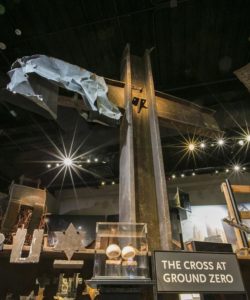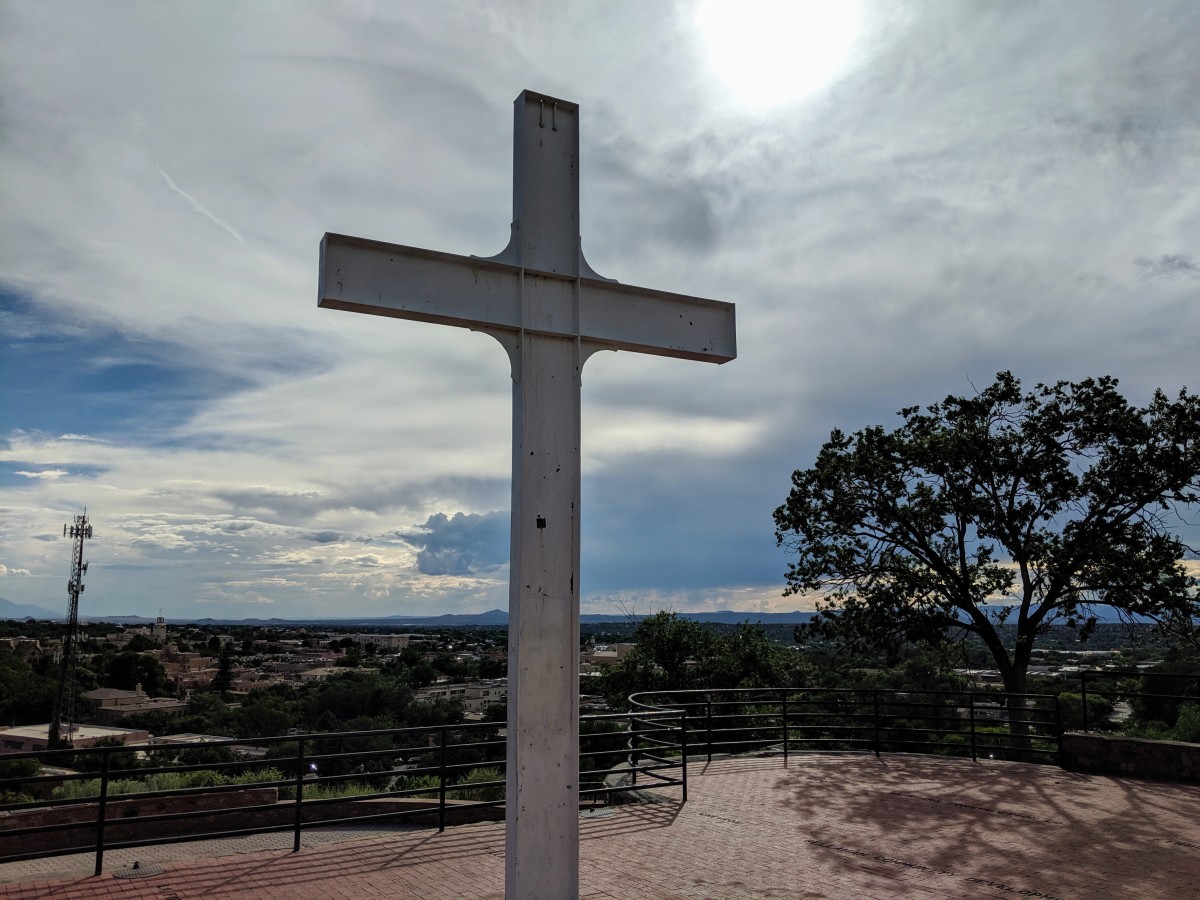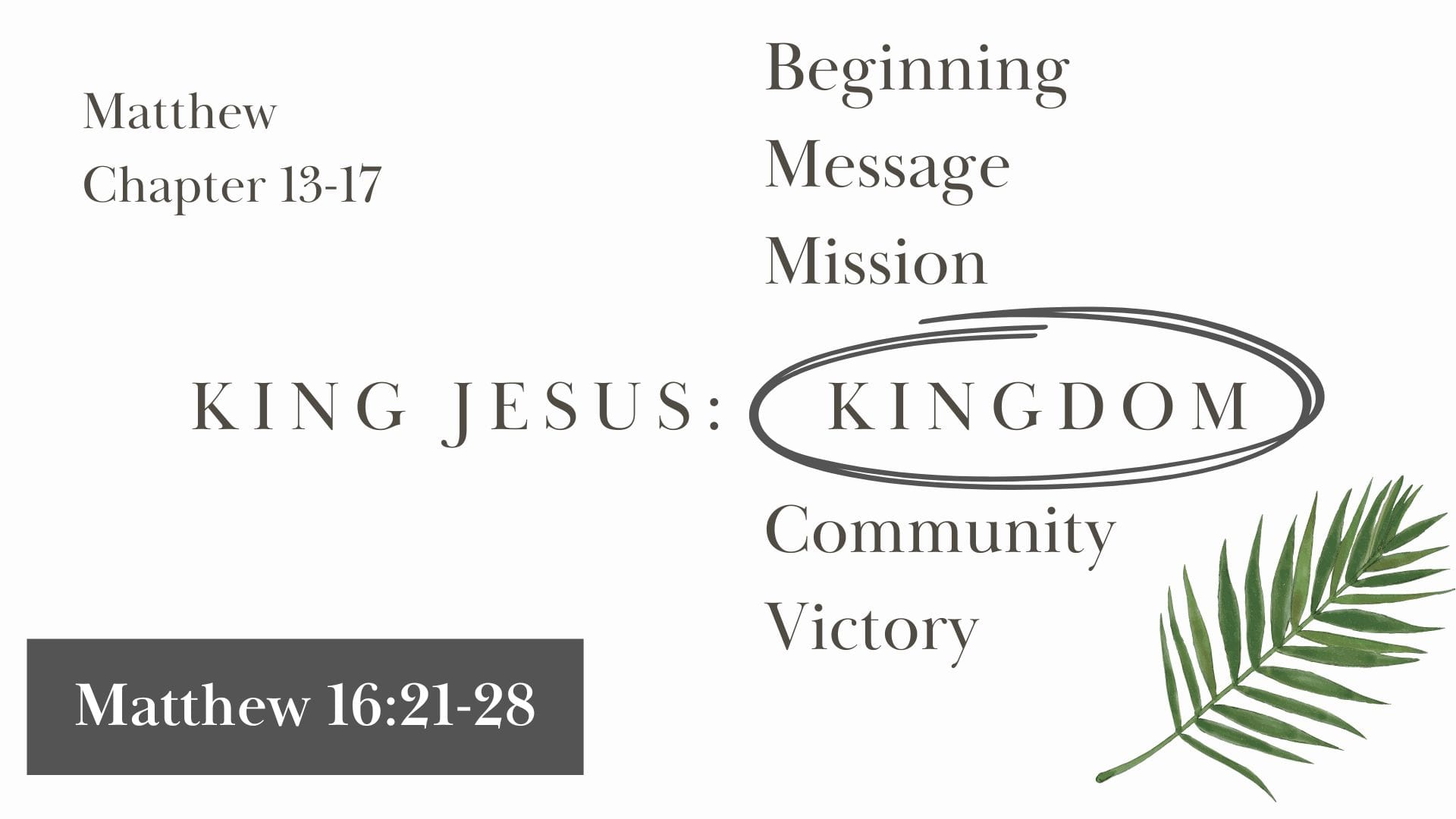Text:
From then on Jesus began to tell his disciples plainly that it was necessary for him to go to Jerusalem, and that he would suffer many terrible things at the hands of the elders, the leading priests, and the teachers of religious law. He would be killed, but on the third day he would be raised from the dead. But Peter took him aside and began to reprimand him for saying such things. “Heaven forbid, Lord,” he said. “This will never happen to you!” Jesus turned to Peter and said, “Get away from me, Satan! You are a dangerous trap to me. You are seeing things merely from a human point of view, not from God’s.” Then Jesus said to his disciples, “If any of you wants to be my follower, you must give up your own way, take up your cross, and follow me. If you try to hang on to your life, you will lose it. But if you give up your life for my sake, you will save it. And what do you benefit if you gain the whole world but lose your own soul? Is anything worth more than your soul? For the Son of Man will come with his angels in the glory of his Father and will judge all people according to their deeds. And I tell you the truth, some standing here right now will not die before they see the Son of Man coming in his Kingdom.”
The Kingdom of Heaven is a spiritual reality that changes HOW I SEE EVERYTHING.
Overall Commentary: 🌎
Today's text is a shift in what Jesus will do from now on. His ministry in Galilee is effectively over. He will now begin to focus His attention on going to Jerusalem for the Feast of Passover. This will end with the Cross and the Resurrection.
As we follow Jesus, He opens our eyes to see the Beauty of the Cross.
Commentary
Verse 21:
- From then on: This phrase notes the shift in Jesus' vision. He is now transitioning the disciples and preparing them for what comes next.
- Elders, leading priests, and the teachers of religious law: This group would make up most of the Sanhedrin. This is the ruling body of the Jewish world from Jerusalem. This would mean official condemnation from the Jewish society.
- Rise the third day: This is very specific. It is likely not remembered by the disciples because of their fear and fleeing at the crucifixion.
Verse 22:
- Reprimand him: A more literal translation is that Peter "rebuked" him. It was considered audacious for a follower to even question his teacher. This would have been unheard of. It is uncertain if Peter was trying to use his newfound status as a leader from just a few verses ago or if he is worried for Jesus. They had envisioned the Messiah as a conquering hero, not a martyr. They have no idea how much bigger Jesus' plan is.
- Heaven forbid, Lord!: This literally means, "My God have mercy on you and not allow this." He went from saying Jesus is God to hoping God would have mercy.
Verse 23:
- Get away from me, satan: Though the most literal translation says, "Get behind me, satan," it is likely Jesus is not telling Peter to follow. He is talking about the lie that Peter is trying to believe, which has been implanted by fear of the devil. It is important to realize that Jesus is not saying Peter is possessed by the devil. He is saying he is believing a lie from the devil.
- A dangerous trap: Most literal translation is something that creates stumbling. Many believe this is the same lie that the devil tried to use on Jesus in Matthew 4:8-10. The devil tried to say Jesus could save the world without having to endure the cross. Jesus notices the lie and stops the enemy from lying to Peter.
Verse 24:
- Take up your cross: We now see this phrase as beautiful because we see the Cross as the source of our freedom. However, as we know it, the Cross has not happened at this time. They knew the Cross as a place of severe suffering. It was so bad, it was not used in "polite society." A Roman citizen was not allowed to be crucified. It was considered too inhuman. It's also important to realize that this is referring to the beginning of the act of crucifixion. Once the crucifixion started, the condemned person had to carry their own crossbeam to the place of torture. This was part of the punishment. Once the process started, it didn't stop until they were dead. Jesus says, "Be willing to commit to me, and don't turn back."
Verse 25-26:
- Lose your own soul: This is a little phrase that creates a lot of controversy due to the word "soul." There is a divide over what a person's soul is. Do we exist as a three-part person (body, soul, spirit)? Are we a two-part person, with the soul and spirit being the same thing? The point of Jesus' phrase is that He is pointing to the part of us that lives past our earthly life.
Verse 27:
- Son of Man: This is a phrase that Jesus used to speak of Himself.
- Judge people according to their deeds: The deeds Jesus is primarily referring to are if they received salvation and became part of the Kingdom of God.
Verse 28:
- Some standing here right now will not die before they see the Son of Man coming into His kingdom. This has also caused some speculation because Jesus' final Kingdom clearly did not come before the death of everyone standing there. Therefore, we must engage in some speculative interpretation. Here are the three most important moments Jesus is talking about:
- The Transfiguration: In the next chapter, three of the disciples will see Jesus in all His glory. This is how He will look in His kingdom. Peter alludes to this also being what He thinks in his first epistle (This is what I think He is talking about.)
- Acts 2: Some think the coming kingdom began with the outpouring of the Holy Spirit in Acts 2. This was the moment the church was born.
- The Book of the Revelation of Jesus Christ: The author of the Book of Revelation was the Apostle John.
Top Takeaway- Jesus teaches how to see the Cross and Never Quit!
Message Notes
Further Resources for Deeper Study
- Blue Letter Bible: Cross-Reference/Word Studies/Translations
- How to Cross-reference passages. Let the Bible interpret the Bible.
- BibleHub.com: So. Many. Tools.
- Bible Study Notes
- Matthew Henry Commentary
- Principles of Ministry
Specific Resources to this Text
Commentary on Matthew 16:21-28 - Working Preacher from Luther Seminary
Confession at Risk: Identity, Passion, and Death “From that time on…” today’s gospel lesson begins. Some readers (notably J. D. Kingsbury) have seen in these words (16:21 and matched in 4:17) a clue to Matthew’s structure and movement, dividing the gospel into three major sections: the presentation of Jesus Messiah (1:1-16); the public ministry of … Continue reading “Commentary on Matthew 16:21-28”
Matthew 16:21-28 - Center for Excellence in Preaching
“In the cross of Christ I glory, towering o’er the wrecks of time.” That is a hymn lyric that many Christians know. But the notion of the cross towering over various temporal “wrecks” gained new poignancy when we saw on the news—and for those of us who went to Lower Manhattan in the months after…

The Shape of Your Cross: My Sermon on Matthew 16:21-28
What does it mean to follow Jesus today? Here is a sermon focusing on that important question.

“Take Up Your Cross” (Matthew 16:21-28) - Holy Cross Lutheran Church
Last weekend’s Gospel reading recorded the strong, clear, correct and confident confession of faith made by Simon Peter through the power of the Holy Spirit to Jesus’ question, “Who do you say that I am?… Simon Peter answered, You are the Christ, the Son of the living God!” (Matthew 16: 16) This week we continue […]

Identity Crisis: Turning Point – Sermon on Matthew 16:21-28
August 30, 2020 – Pentecost + 13A Note: this is the final sermon in the “Identity Crisis” series. The previous two weeks were preached by others, while I spent time with my famil…

Matthew 16:21-28
Biblical Commentary
(Bible study)
Matthew 16:21-28 EXEGESIS:
MATTHEW 16. THE CONTEXT
This reading is closely tied to verses 13-20, last week’s Gospel lesson. In verse 16, Peter confessed his faith that Jesus was the messiah, the Son of God. Now Jesus shows him what messiahship and discipleship entail. Prior

The Road No One Wants To Travel - Sermon - Matthew 16:21-28 | SermonSuite
Some time ago, I was riding a train through central England and a man boarded at one of the stops. As he looked for a seat, he saw my face and beamed at me with great joy. “Hi, Will!” he said brightly, in a wonderful British accent. Unfortunately, I’m not Will. When he sat next to me and I opened my mouth to protest his mistaken notion of who I was, my flat American English

August 30, 2020: 22nd Sunday in Ordinary Time
Matthew 16:21-28

Matthew 16:21-28: Jesus Has No Part-Time Disciples
Few Christians abandon everything for the Gospel’s sake. Most of us simply fit our Christianity into the open spots on our calendars. But Jesus links the life of discipleship with his own path.

Matthew 16:21-28 The Cost of the Cross
Jesus Predicts His Death 21 From then on Jesus began to tell his disciples plainly that it was necessary for him to go to Jerusalem, and that he would suffer many terrible things at the hands of the elders, the leading priests, and the teachers of religious law. He would be killed, but on the third day…
















